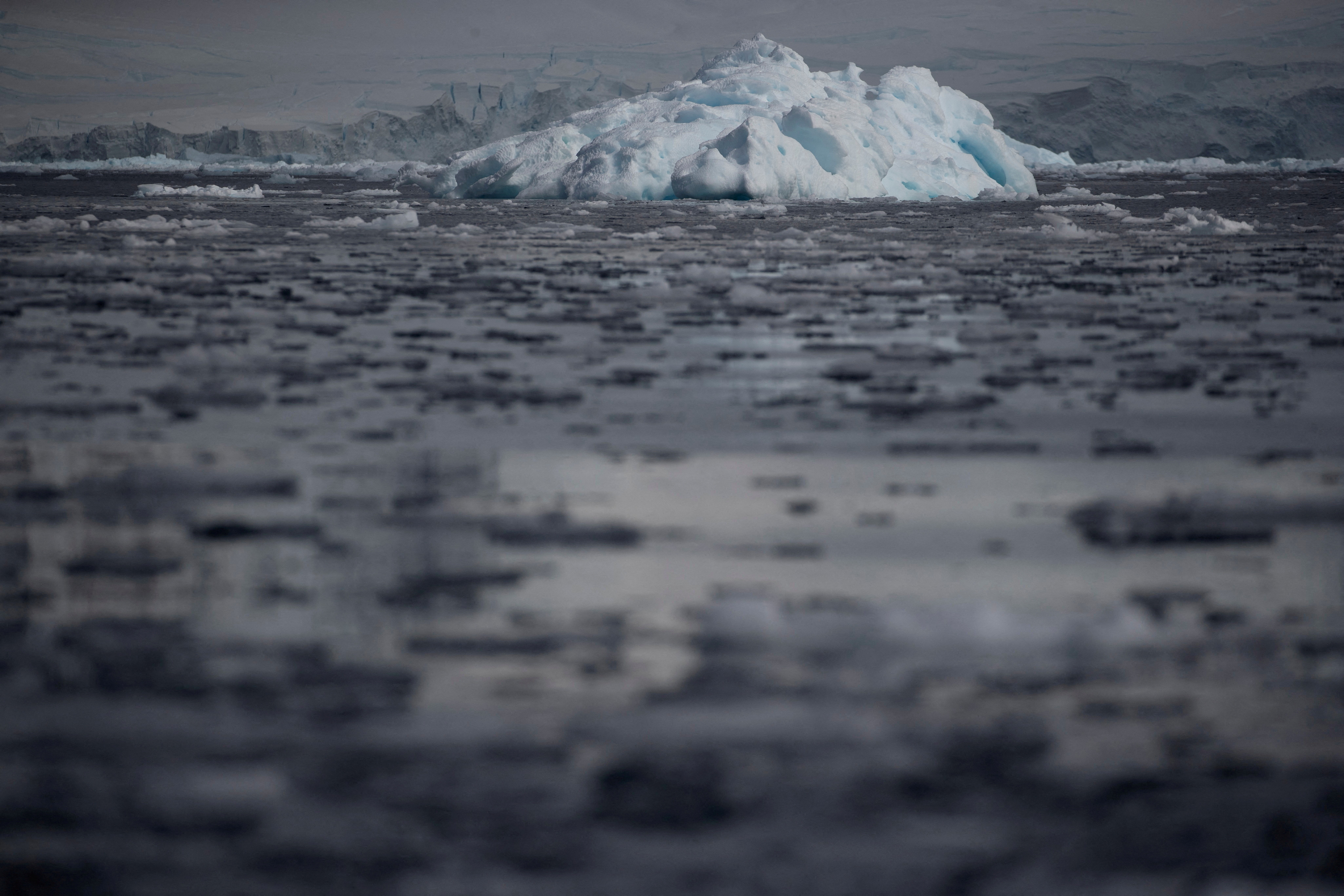Scientists track 'alarming' melt in Antarctic ice shelves

Small chunks of ice float on the water near Fournier Bay, Antarctica, February 3, 2020. REUTERS/Ueslei Marcelino/File Photo/File Photo/File Photo Purchase Licensing Rights
BRUSSELS, Oct 12 (Reuters) - Around 40% of Antarctica's ice shelves have significantly shrunk over the last 25 years, scientists said on Thursday, in findings the European Space Agency said were "alarming".
The melting saw 71 of Antarctica's 162 ice shelves lose mass from 1997 to 2021 - of which 68 posted a "statistically significant" reduction, according to the study published in the journal Science Advances on Thursday.
Scientists said the losses went beyond the ice shelves' normal fluctuations and added to evidence of how human-caused climate change is affecting Antarctica.
"We expected most ice shelves to go through cycles of rapid, but short-lived shrinking, then to regrow slowly. Instead, we see that almost half of them are shrinking with no sign of recovery," said lead author Benjamin Davison, research fellow at the University of Leeds.
During the studied period, the scientists found 29 ice shelves gained mass and 62 did not change significantly.
The scientists said 48 of the ice shelves had lost more than 30% of their mass during the 25-year period. A key driver of the melting was ocean currents and winds on Antarctica's western side, pushing warm water under the ice shelves.
Ice shelves are floating platforms of ice that surround the Antarctic continent, helping to protect and stabilise the region's glaciers by slowing their flow into the ocean.
Large ice shelf melts unleash freshwater into the ocean - which could have knock-on effects on ocean circulation, said the European Space Agency, whose satellite radar images were used in the study.
Initial data published last month showed sea ice that packs the ocean around Antarctica has hit record low levels this winter, adding to scientists' fears that the impact of climate change at the southern pole is ramping up.
Sign up here.
Reporting by Kate Abnett; editing by Diane Craft
Our Standards: The Thomson Reuters Trust Principles.
